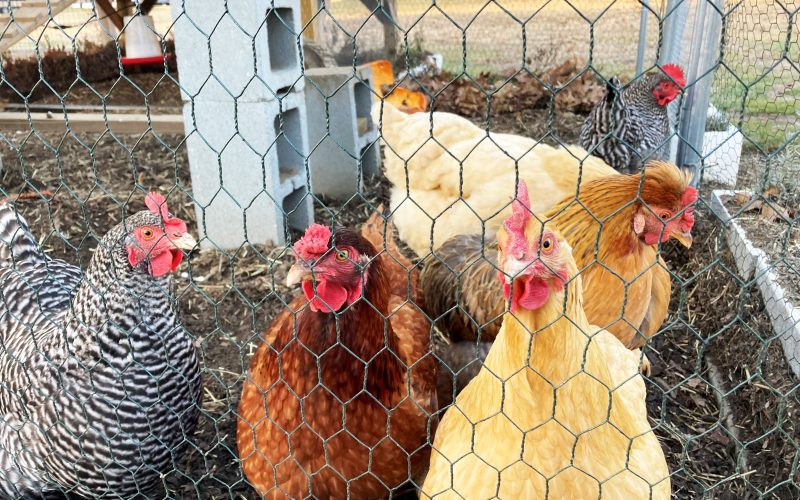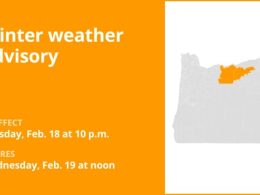Kimberly Henny is accustomed to guests stopping by her charming farm in the Chicago suburbs to pick up fresh vegetables, honey, and eggs. However, Henny and her family are already used to shooing away unwanted visitors—the Canada geese and other migrating birds that prefer to congregate on the nearby golf course—as worries about bird flu spread across the nation.
Henny, 44, said she and her spouse can only hope the geese will fly by their little hobby farm when they see them through the window. She fears that her free-range hens could contract highly pathogenic avian influenza (HPAI) from geese and other wild waterfowl, which could destroy the flock and the main source of income for her family’s little business.
It is terrible. “Our top priority is eggs,” Henny stated. However, we also live on a farm, have two young children, and don’t want to become sick.
Concerns over a continuing avian flu outbreak that some scientists believe could get worse as spring approaches and wild birds migrate are already high among owners of small flocks, which range from private coops to tiny egg farms. However, despite growing concerns about disease, record-high egg prices are encouraging those who have never raised hens before to start their own backyard flocks.
Since its initial confirmation in commercial flocks two years ago, HPAI has infected over 1,550 flocks, both backyard and commercial. Data from the Agriculture Department’s Animal and Plant Health Inspection Service shows that about 160 backyard and commercial flocks have been impacted in the last 30 days alone. Although the disease is typically regarded by the Centers for Disease Control and Prevention as low-risk for people, the first recorded human death in the outbreak occurred in January in a Louisiana man who was over 65 and had underlying medical issues.
A backyard that is biosecure
According to Carol Cardona, a poultry virologist and professor at the University of Minnesota’s College of Veterinary Medicine, the H5 variant of avian influenza first gained international attention in 1997. Since then, researchers have observed the virus’s ebbs and flows and mutations as it infects humans, cattle, and other mammals.
Other animals can contract the virus from contaminated sources such chicken feed, soil, water dishes, and cages, while infected birds can spread it through respiratory droplets and secretions like saliva and feces.
Cardona cautions that as spring draws near, the threat level will only increase because wild birds will clog migratory flyways and hens will spend more time outside because sunlight increases their egg production.
According to Cardona, if a single bird becomes infected, it may be nearly impossible to stop the spread in a backyard or big commercial flock.
According to Cardona, the avian flu spreads quickly and can kill hens in as little as two days. What measures are you now taking to stop the spread to the other flock members? Within the next week, the remaining birds will face a terrible death if there is nothing there.
To improve the biosecurity at her farm, Henny, a small egg farmer, has relied on her experience in the supply chain and nutrition industries. She has modeled hand cleaning trucks, sanitizing work boots, and ensuring that anybody in close proximity to the birds washes their hands both before and after contact.
The hens still need time outside, but cooping her more than thirty chickens may protect them from common predators like foxes and coyotes and protect them from sick wild birds that might land on the property. She claimed that as the days lengthen and the temperature rises, that demand will only increase.
Henny stated that they must roam. They are not able to be cooped up constantly. Similar to children, they will peck at one another, which leads to more issues.
Given the strong demand for farm eggs due to grocery store shortages, losing some or all of her flock would be disastrous for Henny’s business. Henny may gather three to four dozen eggs per day throughout the hottest spring and summer months. Henny’s customary one- to two-month egg waitlist is already extending into June this year.
Coop owners on the decline or completely unconvinced
According to Libby Durley, losing hens may be expensive and upsetting, even for flock owners who don’t depend on eggs for revenue. Durley, 34, took in hens that needed to be rehomed and has been caring for a small flock in her backyard in Chicago for almost three years.
Regarding my level of attachment to them, Durley stated, “I’m a huge animal lover; I love them as much as I love our indoor pets.”
She had to look for a local veterinarian who would treat poultry birds after having to put down a chicken last year for reasons unrelated to avian flu. According to her, she wanted the procedure to be as humane as it would be for a dog or a cat. Although she is aware that not everyone would have the same degree of love to her hens as she does, she has made the decision to be as watchful as she can in order to prevent her chickens from dying a torturous death.
When Durley discovered that her previous feeder fed everything in the area, including birds and squirrels, she decided to build a new kind of feeder that can be quickly closed off to reduce the spread of avian flu.
While Durley throws out the hens’ water for wild birds and other animals to use, the new feeder shuts off the feed, which can spread avian flu.
“They tell you to watch out for [bird flu] symptoms like runny droppings or decreased egg production, but sometimes that just happens,” Durley added. Looking at the list of symptoms can throw you into a tailspin.
According to Durley, there has been a mixed reaction to bird flu in Facebook groups for backyard chicken enthusiasts, with some members of the community voicing doubts about the threat’s veracity.
One post or comment asks what individuals are doing to protect their flocks, and fifty people reply that [bird flu] is a hoax and that the government is trying to harm you.
The cost of eggs may be too high for backyard coops.
Although Durley loves her birds and even puts a disco ball in their coop, she freely acknowledges that raising even a few hens is a lot of work.
The increase in interest among those who believe a backyard coop is the answer to high egg costs and who might be illiterate or uninterested in the laborious aspects of flock management, such as biosecurity, has animal rescue activists like Julia Magnus concerned.
“Those who are motivated to stand up backyard flocks for a private egg supply could not only exacerbate avian flu spread but also overstress rescue operations when people eventually lose interest in the endeavor,” said Magnus, co-founder of the Chicago rooster rescue Roo Crew and contributor to the animal sanctuary resource the Open Sanctuary project.
Many individuals purchased backyard chickens because they felt it was a brilliant idea when COVID hit. Magnus said, “And we had a huge influx of surrenders when they got bored of it.” This is a 10-alarm fire for kindhearted caregivers—those who keep chickens as pets rather than as food.
Under USDA regulations, the entire flock is often slaughtered once an infection has been identified and reported, and shelters and hospitals can quickly run out of room for quarantine.
Alex Burssens, a co-owner of Red Barn Feed and Supply in Loxahatchee, Florida, described raising hens as a caring and technical art form.
Due to chickens entering their egg-producing season in a few months, Burssens has sold between 200 and 300 chicks every week during the winter, which is significantly more than in prior years.
According to Burssens, they usually only stay in the store for a day or two before we sell out. He also mentioned that there is a shortage of animals and eggs because of flu and other factors, therefore there is a strong demand in places like ours where individuals have the space.
Professor Cardona cautions that new hobbyists who are inspired to start their own coop by the expensive cost of eggs can end up with more than they anticipated.
Although keeping hens is a great pastime, they are birds that need and want attention. “It’s not a machine you put in your backyard and tell it to start producing eggs,” Cardona explained.
She went on to say that raising eggs is not inexpensive: the cost of feed for a backyard business will be higher than the price of store-bought eggs.
Observing her small flock in her garden in Chicago during a raging avian flu outbreak has only made Durley more aware of the birds’ ongoing susceptibility to danger.
She claimed that practically everyone wants to eat chicken.










